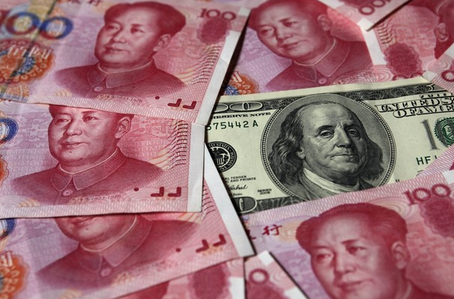Chinese yuan dominates global bitcoin trade
Post on: 18 Апрель, 2015 No Comment

Promotions
The yuan accounts for most of the trade in bitcoins as trading of the unregulated digital currency soars in the world’s second-largest economy.
By noon yesterday, about 58 per cent of the global trade during the preceding 24 hours occurred on exchanges trading the mainland currency, according to open-source research project BitcoinAverage .
According to the aggregator of market data, China’s trading volume in the period reached 827 million yuan (HK$1 billion).
Trades in US dollars account for roughly 37 per cent of global volume. Trades in euros account for slightly less than 2 per cent. No other currency accounts for more than one per cent of trade, according to BitcoinAverage.
Fortunes have already been made in China via the virtual currency. The value of a bitcoin in China soared 861.02 per cent from 844.75 yuan on September 3, the earliest data available on BitcoinAverage, to its peak value last Friday of 7273.47 yuan.
The virtual currency was trading at between 6,300 and 6,400 yuan on Tuesday morning on major Chinese exchanges.
Unlike with previous virtual currencies, China’s deputy central bank governor Yi Gang said last month that bitcoins could be freely traded, although the government would not accept them as currency.
A provincial subsidiary of state-run China Telecom even said it would accept payment in the virtual currency. Jiangsu Telecom said last week it would accept the virtual currency for pre-orders of a new Samsung phone .
“China is driving the volume predominantly for two reasons: speculation and mining,” said Zennon Kapron, managing director fo the Shanghai-based financial advisory firm Kapronasia. “Returns on Bitcoin this year have surpassed real estate which previously was the best performing mainstream asset class in China, which has naturally attracted more attention and further driven the price up.”
Kapron said it was natural for China, the world’s biggest manufacturer of bitcoin mining equipment, to play a large role in the trade.
Li Lin, head of the Beijing-based Huobi trading platform, told the Beijing Morning Post last week that the majority of new bitcoin traders are women. Another trend is the popularisation of the currency beyond IT geeks and financial experts, she said, adding that a third of the trades on Huobi were made by large investors trading more than a million yuan. Li did not reply to requests for comment.
Another trend seen is the popularisation of the currency beyond IT geeks and financial experts, she said, adding that a third of the trades on Huobi were made by large investors trading more than a million yuan . Li did not reply to requests for comment.
Liu Jun, the Shenzhen-based CEO of the GoX trading platform told the Post he agreed that non-professionals were increasingly trading in bitcoins, but that men still dominated trades on GoX by about 80 per cent.
The trading platform, which launched in June and is registered in Hong Kong, has had up to 20,000 users, who on average invest between 20,000 and 100,000 yuan in the virtual currency, he said. The youngest trader on his platform is 20 years old, while the oldest is in his forties.
On Monday, the platform registered a turnover of 64 million yuan in 10,000 trades, he said.
The 30-year old software engineer from Changsha, Hunan province, said bitcoins were bound to rise in popularity as they offered a democratic alternative to the stock exchange. “There are so many manoeuvres behind the scenes determining the trading of stocks in China, whereas bitcoins offer a fair trade,” he said.
Liu Tao, the founder of the Shanghai-based BitXF trading platform, said he noticed more non-professionals are entering the trade. In the past, the questions asked by customers were professional, recently we are confronted with more and more simple questions, he said. Many investors don’t really understand bitcoins.
Liu said he expected some market correction in the near future, but was optimistic about the rise of the virtual currency within the next two to three years. Liu’s trading platform has a turnover of about 200 bitcoins per day on average, he said.
GoX’s Liu Jun estimated that between one and two million Chinese have so far traded in bitcoins. These numbers are bound to increase in smaller cities if the Chinese government did not intervene, he said.
The trade, however, not only entails regulatory risks. The first known case of a bitcoin exchange going bust made headlines last month. The closure of Global Bond Ltd. (GBL) left hundreds of investors with combined losses of 25 million yuan.














